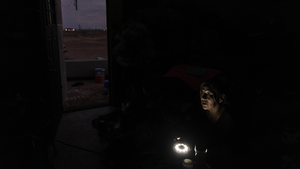March 9, 2015

Docker continued to expand the breadth of its capabilities by acquiring networking startup SocketPlane in a deal announced earlier this month.
The company's recent moves, such as the addition of container orchestration toolsets, have been aimed at making Docker containers easier to manage at scale, in distributed fashion, and in production. SocketPlane helps with the networking piece.
David Messina, vice president of enterprise marketing at Docker, said the acquisition was driven primarily by the need to address multi-container and multi-host applications developers were building.
"You have all these orchestration tools that carry [multi-container, multi-host apps] forward, but by solving one problem in the stack, you put pressure on the next," he said. "Networking is incredibly sophisticated. We have a definition of network connectivity for multi-host and multi-container apps, but we need to build things around monitoring and policy. Once I have defined networking, how can it be portable?"
The goal is to make it so that Docker users don't have to redefine the network piece to fit those complex applications. It's extending the portability containers provide to the networking part of the stack. "They shouldn’t have to redefine everything from a networking standpoint," said Messina.
SocketPlane is a software defined networking technology that integrates Docker container management platform with open source virtual switch Open vSwitch. As part of Docker, the company will work on the Docker project rather than working on standalone networking solutions.
Docker’s acquisitions to date have all been small operations with specific skillsets, and that trend continues with SocketPlane and its six-man team. Smaller teams pose fewer integration issues.
Last year, Docker acquired a four-man team called Koality and its continuous integration framework and a two-man operation called Orchard Labs, providers of an orchestration tool and a hosted Docker service. The hosted Docker service stopped sign ups in October, so that the team could focus on Docker itself.
Like the companies acquired previously, SocketPlane has been very active in the Docker community and has a good reputation.
"Everybody understands these guys are highly collaborative – and that is our goal [with acquisitions]," Messina said. "This is just another example of putting the emphasis on 'batteries included but swappable.' SocketPlane will build up the API, so others can deliver their networking technology."
Docker has to be careful with its roadmap, much like any technology company dependent on channels, ecosystems or development communities.With the rise of Docker comes rise of an ecosystem that extends and complements Docker containers. Acquisitions impact the wider community.
Docker's goal here is to offer a higher order of networking APIs in a way that ensures all these different vendors continue to build differentiated technologies, while continuing freedom of choice, according to Messina.
The company's acquisitions have been informed by what the community around its technology finds valuable enough to include in the project.
"It is exactly what Docker needs to do as a company to fulfill its vision and the expectations that come along with aggressive fundraising," StackEngine CEO Bob Quillin said, commenting on the deal. StackEngine is one of the companies in the Docker ecosystem. The startup, which provides automation and management for Docker containers, emerged from stealth last October.
"This natural encroachment has to be included as part of the planning and strategy for companies operating in this space," Quillin said. "The challenge for Docker going forward will be navigating this slippery slope without losing the hearts and minds of the community that they worked so hard to build. A rising tide lifts all boats - but just make sure you have a fast boat."
About the Author
You May Also Like

.jpg?width=300&auto=webp&quality=80&disable=upscale)





